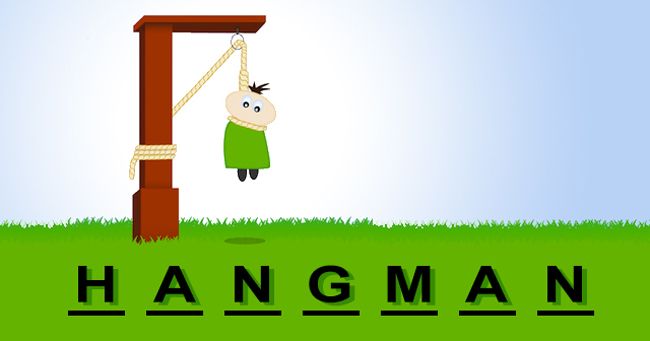Sports Words, Hangman: Words
A fractional listing of 10/1 (ten-to-one) odds would mean that you win $10 against every one dollar you wager, in addition to receiving your dollar back (i.e. the amount you wagered) https://juicebet-bookmaker.com/nfl/. In other words, this is the ratio of the amount (profit) won to the initial bet, which means that you will receive your stake ($1) in addition to the profit ($10), resulting in a total payout of $11. If you bet $100 at 10/1 odds, you would profit $1,000 and net a total of $1,100.
A moneyline is quite simple: it’s a straight-up wager on the winner of a sporting event. It’s the O.G. of American sports gambling thanks to its simplicity. Unlike spreads, which differ by winning margin but always have relatively similar odds, moneylines never involve winning margins but generally see fluctuating odds.
These numbers represent the amount you could win against each $1 you put at stake. So, if you bet $100 on the Boston Celtics to win, you could receive a total payout of $400 ($100 x 4.00). This amount includes the initial wager of $100, resulting in a total net profit of $300.
All About Sports, Hangman
In fact, we use hangman game ideas across our remote training program at corporateenglish.biz. Teams from different countries connect via phone and guess sports word puzzles together—fostering both communication and laughter.
In fact, we use hangman game ideas across our remote training program at corporateenglish.biz. Teams from different countries connect via phone and guess sports word puzzles together—fostering both communication and laughter.
This technique doesn’t just work in kids’ classrooms. Even adult learners can benefit, especially in corporate settings where our platform at business-english.info helps international professionals sharpen their communication. We also support remote English conversation training through native teachers at corporateenglish.biz.
Let’s break it down. First, start by preparing a list of themed words. Themed games give context, and context improves memory. Try hangman game ideas with terms like “goalkeeper,” “penalty,” “cheerleader,” or “championship.”
All about sports hangman isn’t just a fun classroom distraction—it’s actually a surprisingly effective way to learn English, especially when it comes to vocabulary building. When learners are engaged in games like hangman, their brains stay alert and active, which helps words stick better than rote memorization. Whether it’s sports hangman words or everyday business vocabulary, this kind of learning through play makes a real difference.
Did you know that all about sports hangman isn’t just for kids? It can also be used to teach professional vocabulary in corporate training environments. Our team at corporateenglish.biz often uses creative games to help employees in multinational companies improve their English communication skills.
All About Sports
To widen participation, and reduce the impact of losing on less able participants, there has been an introduction of non-competitive physical activity to traditionally competitive events such as school sports days, although moves like this can be controversial.
Records of performance are often kept, and for popular sports, this information may be widely announced or reported in sport news. Sport is also a major source of entertainment for non-participants, with spectator sport drawing large crowds to sport venues, and reaching wider audiences through broadcasting. Sport betting is in some cases severely regulated, and in others integral to the sport.
While the religious aspects of Turkish and Iranian “houses of strength” (where weightlifting and gymnastics were practiced) became much less salient in the course of the 20th century, the elders in charge of Japanese sumo added a number of Shintō elements to the rituals of their sport to underscore their claim that it is a unique expression of Japanese tradition. A somewhat arbitrary distinction can be made between wrestling and the many forms of unarmed hand-to-hand combat categorized as martial arts. The emphasis of the latter is military rather than religious, instrumental rather than expressive. Chinese wushu (“military skill”), which included armed as well as unarmed combat, was highly developed by the 3rd century bce. Its unarmed techniques were especially prized within Chinese culture and were an important influence on the martial arts of Korea, Japan, and Southeast Asia. Much less well known in the West are varma adi (“hitting the vital spots”) and other martial arts traditions of South Asia. In the early modern era, as unarmed combat became obsolete, the emphasis of Asian martial arts tended to shift back toward religion. This shift can often be seen in the language of sports. Japanese kenjutsu (“techniques of the sword”) became kendō (“the way of the sword”).
The most famous association of sports and religion was certainly the Olympic Games, which Greek tradition dates from 776 bce. In the course of time, the earth goddess Gaea, originally worshiped at Olympia, was supplanted in importance by the sky god Zeus, in whose honour priestly officials conducted quadrennial athletic contests. Sacred games also were held at Delphi (in honour of Apollo), Corinth, and Nemea. These four events were known as the periodos, and great athletes, such as Theagenes of Thasos, prided themselves on victories at all four sites. Although most of the events contested at Greek sacred games remain familiar, the most important competition was the chariot race. The extraordinary prestige accorded athletic triumphs brought with it not only literary accolades (as in the odes of Pindar) and visual commemoration (in the form of statues of the victors) but also material benefits, contrary to the amateur myth propagated by 19th-century philhellenists. Since the Greeks were devoted to secular sports as well as to sacred games, no polis, or city-state, was considered a proper community if it lacked a gymnasium where, as the word gymnos indicates, naked male athletes trained and competed. Except in militaristic Sparta, Greek women rarely participated in sports of any kind. They were excluded from the Olympic Games even as spectators (except for the priestess of Demeter). The 2nd-century-ce traveler Pausanias wrote of races for girls at Olympia, but these events in honour of Hera were of minor importance.
Sports Words
There are other terms like this that appear quite logical in their application, including first base, free throw, and field goal. But it’s important to recognize that part of what makes these terms so familiar and commonplace is the formalization of modern sports that has taken place over the last couple centuries.
These two slang terms are good examples of where some of the most unusual sports lingo comes from. Whether it’s a specific sporting event as with hat trick, or an everyday term that crossed over into sports like nutmeg, these words and phrases represent the close connection between sports and shared culture.
Noun: Another word for arena that you’re probably more familiar with is stadium . It’s a flat area that hosts (holds) sporting events like the Olympic Games, soccer and rugby games. It is circular (like a circle) in shape and surrounded by seats for fans to sit.
Not all sports in the Middle Ages were quite as rough as jousting, however. Archery was widely practiced during this time, and other popular sports included stoolball (similar to cricket), colf (similar to golf), and skittles (similar to ten-pin bowling).
Sports are a part of everyday life, and many people absolutely love them. You might prefer to watch sports on TV or listen to live games on the radio. Perhaps you play sports as a fun way to stay healthy, or you could even compete as a serious athlete. No matter your relationship to sports, you’ll need to know some key sports-related words to participate at any level.


